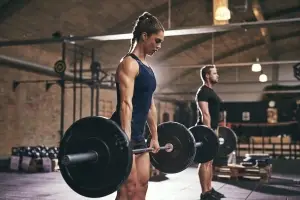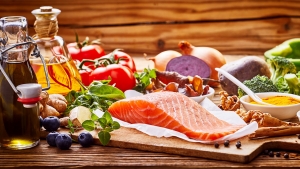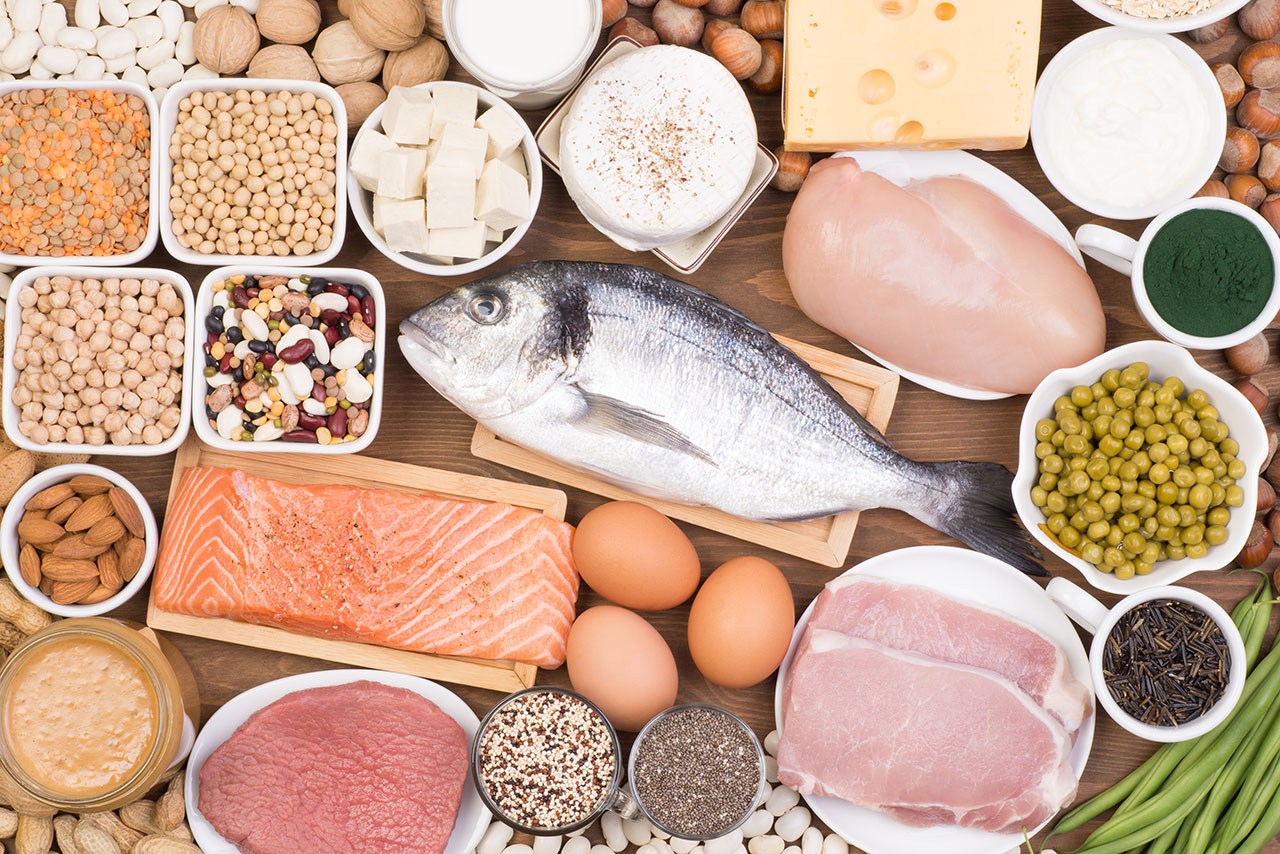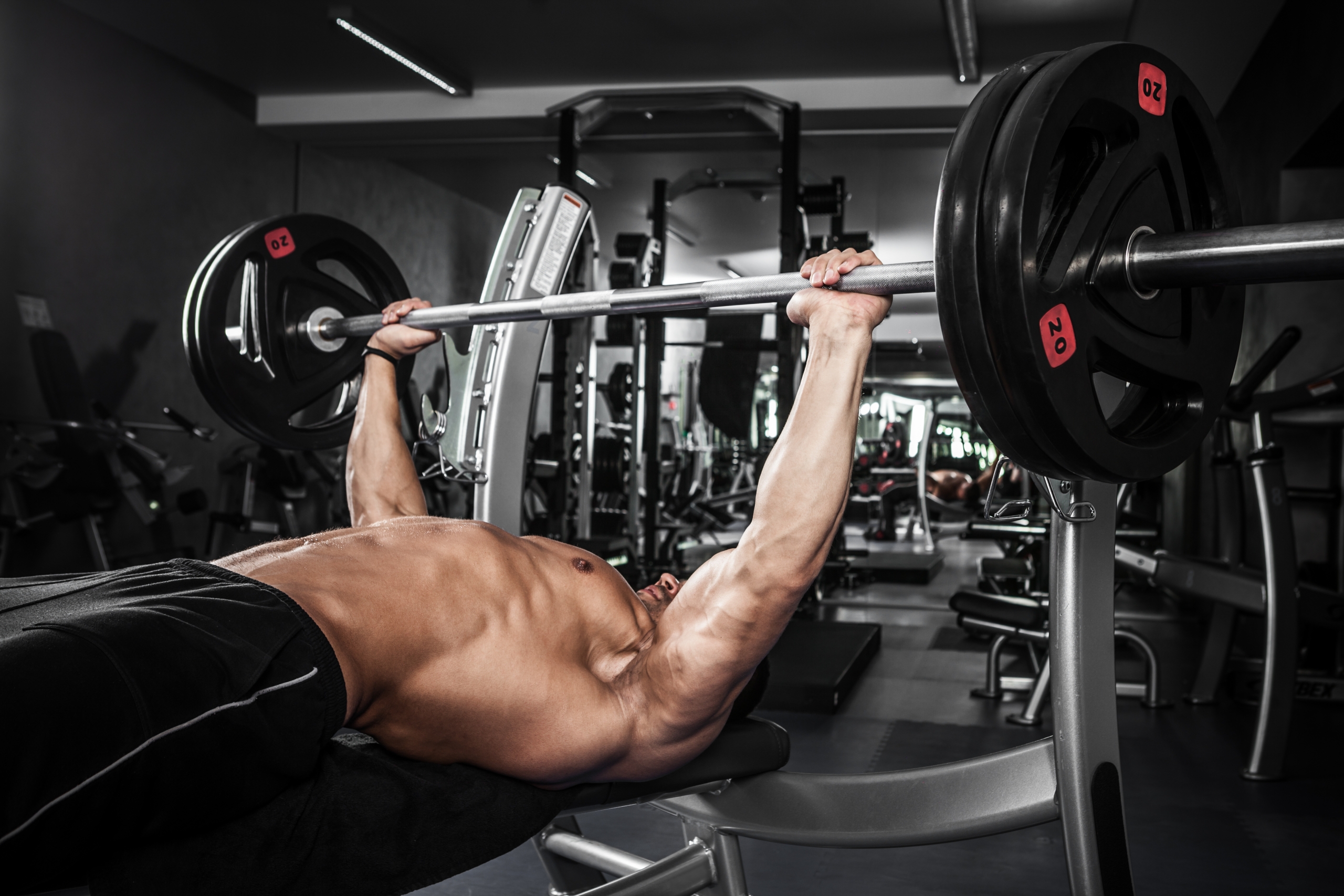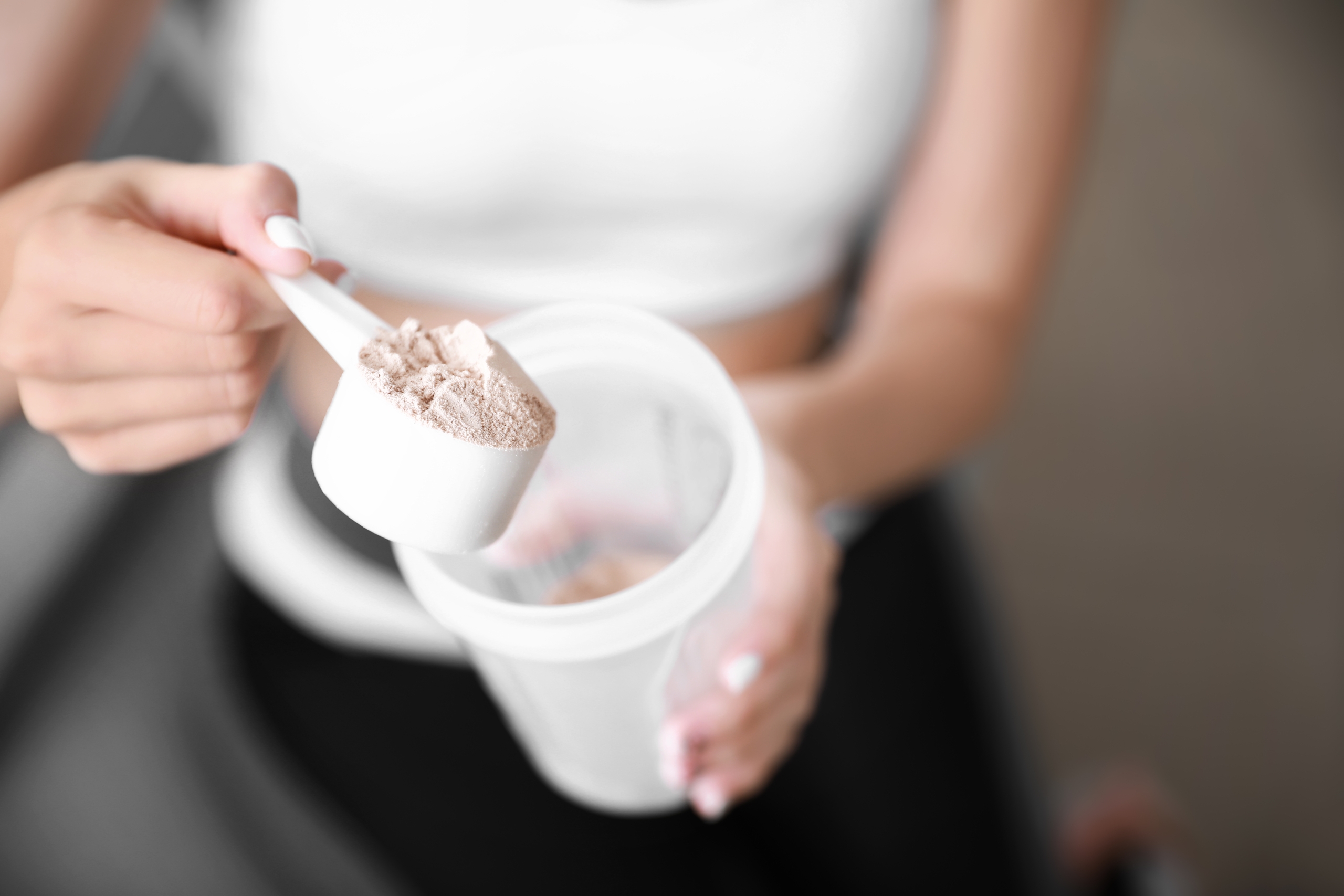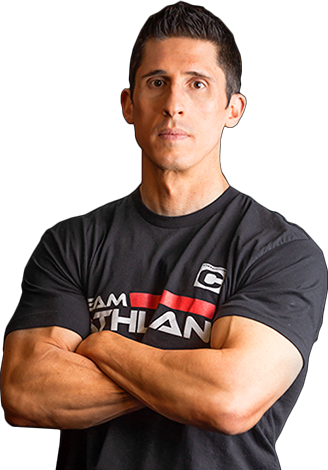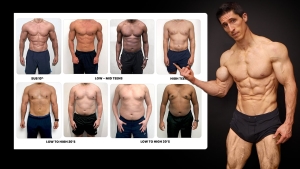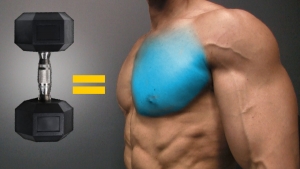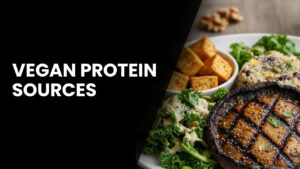The daily Protein Calculator below will give you an estimate of how many grams of protein per day you should be eating for people who are looking to build muscle, lose body fat or maintain existing muscle mass. Calculations are based on your weight and goals. You can then use this data to determine whether you want to make changes to your protein intake to help support gaining muscle mass or losing body fat.
Fill out the details in the daily Protein Calculator below based on your current stats and activity level to determine your ideal protein intake in grams. Be as honest as possible about your actual activity level so that you get the most accurate results.
Protein calculator
Your recommended daily calories: 2322
Recommended for Daily Protein: 180 grams
ARE YOU EATING ENOUGH PROTEIN?
Most people aren’t eating enough protein. And if you think you are, you’re probably wrong.
Relying on the daily dietary allowance? That’s not the best measurement for adults trying to build muscle mass or drop body fat without sacrificing hard-earned lean mass.
The Recommended Dietary Allowance (RDA) for protein only 0.8 grams of protein per kilogram of body weight, or 0.36 grams per pound.
This guidance on protein needs is just not enough protein for serious muscle gains.
Grabbing a protein shake after your workout? That’s just one meal. Not a strategy.
Maybe you’re eating a “high-protein diet.” Well, that’s a decent start. But are you tracking grams of protein per pound of body weight?
Guys, if your daily protein intake isn’t dialed in to your body composition goals and activity level, you’re sabotaging muscle protein synthesis and slowing down recovery.
Keep in mind that not all dietary protein sources are created equal.
A scoop of whey protein powder? Good. Pea protein? Maybe. Incomplete proteins? Useless.
The fact is you need adequate protein intake from the right sources, in the right doses of protein, spread out throughout the day.
Stop winging it. Use this protein intake calculator to figure out your daily requirements and start making real progress.
HOW TO CALCULATE YOUR PROTEIN REQUIREMENTS
Most people have no clue how much protein they actually need.
They either undereat and stall their muscle growth or overeat and think more protein automatically means more muscle (spoiler: it doesn’t).
The truth? You don’t need a PhD in nutrition to get this right.
I’m going to cut through the confusion and give you three simple numbers to remember.
Pick the right category below, multiply the number by your body weight (in pounds), and you’re done.
No complicated formulas. No second-guessing.
MINIMUM INTAKE: 0.8 GRAMS OF PROTEIN
Consuming 0.8 grams of protein per pound of body weight per day is the least amount of protein you should eat to build muscle, avoid losing muscle and keep your body functioning properly.
This level of protein consumption is for the following types of people:
- People who are strength training a couple times per week
- Anyone who just wants to preserve muscle without aiming for serious muscle growth.
Your body is constantly breaking down and rebuilding muscle even if you’re not lifting weights.
But without enough protein, that rebuilding process slows down, and over time, you lose muscle instead of maintaining it.
This is why 0.8g per pound of body weight is the bare minimum if you are training to build muscle or want to keep your muscle from wasting away.
For example, if you weigh 180 lbs, your minimum daily protein target is 144g per day (180 x 0.8).
Remember that this is the absolute floor for muscle building or maintenance.
If you’re not training hard, you don’t need a ton of protein, but you still need enough to prevent loss of muscle.
RECOMMENDED INTAKE: 1.0 GRAM OF PROTEIN
This is the gold standard for protein intake.
If you’re training consistently and want to achieve muscle growth, fat loss, and better recovery, one gram of protein per pound of body weight is your number.
This level of protein consumption is for the following types of people:
- People who train 3-5 days per week (weights, resistance training, or intense cardio).
- Anyone looking to build muscle while staying lean.
- Those who want to make sure they’re getting enough protein without overcomplicating things.
One gram of protein per pound of body weight is enough to maximize muscle repair, fat loss, and strength gains, but not so much that you’re overloading your system with protein you don’t need.
For example, if you weigh 180 lbs, your recommended daily protein target is 180g per day (180 x 1.0).
This is the tried-and-true standard used by bodybuilders, athletes, and anyone who wants a lean, muscular physique without the guesswork.
Bottom line: If you’re serious about getting stronger, leaner, and more defined, this is where you want to be.
HIGH INTAKE: 1.2 GRAMS OF PROTEIN
This is for the athletes and lifters who already have a lengthy history of pumping iron under their belts, or who is a hardgainer by definition and want to go to the next level.
If you want to maximize muscle growth, performance, and recovery, 1.2 grams of protein per pound of body weight is your target.
This is who will benefit the most from this level of protein consumption:
- Advanced lifters, bodybuilders, and athletes training 5+ days per week.
- Those who want to hold onto every ounce of hard-won muscle.
- Anyone who trains hard, recovers slowly, or needs extra protein to fuel intense workouts.
If you’re pushing your body to the limit, your protein needs go up.
Every intense workout creates microtears in your muscles and protein is the building block your body uses to repair and grow them stronger.
More training = More muscle breakdown = More protein needed for recovery.
For example, if you weigh 180 lbs, your high protein target is 216g per day (180 x 1.2).
If you’re training like an athlete, recovering like an athlete, and performing like an athlete, your protein intake needs to match your output. Use a protein intake calculator to make sure you’re getting enough every day.
PROTEIN CHEAT SHEET
| Goal (Activity Level) | Grams of Protein Per Pound of Bodyweight | Example (Using a 180-pound person) |
| Build or Maintain Muscle (Minimum) | 0.8g per lb | 144g per day |
| Build Muscle (Recommended) | 1g per lb | 180g per day |
| Maximize Growth & Performance (High) | 1.2g per lb | 216g per day |
 WHAT IS PROTEIN?
WHAT IS PROTEIN?
Protein isn’t optional. It’s the raw material your body needs to build and repair muscle mass, burn body fat, and support physical performance.
Without adequate protein intake, you’ll be stuck spinning your wheels with lifting, dieting, and still wondering why you’re not seeing results.
Every muscle in the human body is built from amino acids, the same compounds that make up dietary protein sources. (See the connection here?)
Some of these amino acids can be produced naturally in the body, but essential amino acids, the ones that actually drive muscle protein anabolism, must come from dietary protein intake.
And if you’re not getting enough of these amino acids, your muscles won’t grow. Simple as that.
Without the right grams of protein per meal, your recovery slows down, leaving you sore, weak, and stuck in a cycle of frustration.
If you’re not measuring your protein per pound or per kilogram of body weight, your body composition suffers, making it harder to build strength and burn fat.
When you train hard, your body demands higher doses of protein to repair the muscle damage caused by exercise.
Getting the right amounts of protein throughout the day triggers muscle protein synthesis (MPS), the process responsible for muscle growth, lean body mass maintenance, and overall physical performance.
NOT ALL PROTEIN IS CREATED EQUAL
Not all protein sources fuel muscle growth the same way.
Sure, looking at the total grams of protein in your diet is important but not at the cost of ignoring protein quality.
Some provide all the essential amino acids your body needs for muscle protein synthesis, while others fall short, requiring strategic combinations to get the full muscle-building benefits.
COMPLETE PROTEINS
If you’re serious about building muscle, recovering faster, and getting stronger, complete proteins need to be a non-negotiable part of your diet.
These powerhouse proteins contain all nine essential amino acids, the ones your body can’t make on its own but needs for muscle growth, repair, and overall performance.
Complete proteins are essential for building and repairing muscle because they stimulate muscle protein synthesis (MPS), the process responsible for muscle growth and recovery.
Without enough high-quality protein, your body struggles to repair the muscle damage caused by intense workouts, leading to slower progress and increased risk of breakdown.
This is especially important if you’re training hard or in a calorie deficit, where muscle loss can occur if protein intake isn’t sufficient.
By prioritizing complete proteins, you enhance recovery, reduce soreness, and improve overall training performance.
Faster recovery means you can train harder, more consistently, and with better results.
Additionally, complete proteins play a key role in optimizing strength, endurance, and body composition, ensuring that you’re not just maintaining muscle but also improving overall athletic performance.
If you want to maximize your gains and minimize muscle loss, here are some examples of proteins that should be a staple in your balanced diet:
- Eggs – 6g per egg
- Chicken breast – 27g per 4 oz
- Turkey – 25g per 4 oz
- Beef – 22g per 4 oz
- Fish (salmon, tuna, cod, etc.) – 20-25g per 4 oz
- Shrimp – 24g per 4 oz
- Greek yogurt – 15g per 6 oz
- Cottage cheese – 28g per cup
- Whey protein powder – 20-30g per scoop
- Quinoa – 8g per cup, cooked
- Hemp seeds – 9g per 3 tbsp
- Chia seeds – 5g per 2 tbsp
- Buckwheat – 6g per cup, cooked
INCOMPLETE PROTEINS
Complementary plant-based protein sources are great but here’s the problem: Most of them are incomplete sources of protein.
That means they’re missing one or more essential amino acids, making them less effective for muscle growth compared to complete protein sources like meat, eggs, dairy products or a whey protein shake.
But before you start thinking “plant-based protein is useless,” hold up.
You just need to be smart about how you combine them.
By pairing the right plant-based foods together, you can fill in the gaps and create a complete amino acid profile, one that actually supports muscle repair and growth.
If you’re relying on plant-based protein, mix and match common foods to get the full muscle-building benefits and optimal health. Some good vegetarian sources of protein include:
- Rice + Beans
- Lentils + Whole Wheat Bread
- Pea Protein + Rice Protein Powder
- Hummus + Whole Grain Pita
- Chia Seeds + Oats
- Corn + Black Beans
- Nut Butter + Whole Grain Toast
These are called complementary proteins and they’re the best way to get your daily protein intake needs met through vegetarian protein sources.
PROTEIN AND WEIGHT LOSS
I want to dive deeper into the most popular fitness goals: weight loss and muscle building. Let’s start with burning fat and how protein can help.
If you’re trying to lose weight but cutting back on protein, you’re making fat loss harder than it needs to be.
High-protein diets don’t just help build muscle.
They’re one of the most effective ways to burn fat faster, stay full longer, and keep your metabolism running high.
PROTEIN BURNS MORE CALORIES
Your body burns calories digesting food, but not all nutrients require the same effort.
This is called the Thermic Effect of Food (TEF), and protein has the highest TEF of any macronutrient.
That means when you eat protein from plant or animal sources, your body burns more calories just by processing it compared to carbs or fats.
High-protein diets can increase calorie burn by up to 20 to 30% of total protein intake.
If fat loss is your goal, increasing your daily intakes of protein can literally help you burn more calories without doing extra cardio.
PROTEIN KEEPS YOU FULL
Fat loss is as much about controlling hunger as it is about being in a calorie deficit.
If you’re constantly starving, sticking to a caloric deficit becomes a nightmare. Protein is the most satiating macronutrient, meaning it keeps you full longer than fats or carbs.
Studies show that higher protein intakes lead to less snacking and fewer cravings, especially if you start the day with a high-protein breakfast.
PROTEIN PREVENTS MUSCLE LOSS
Losing weight isn’t just about shedding body fat. It’s about keeping lean muscle intact.
If your source of nutrition is too low in protein, your body starts breaking down muscle tissue for energy production, which wrecks your metabolism and makes it harder to stay lean in the long run and can cause other health concerns.
This is why lower-protein diets are a bad strategy for fat loss.
Instead, aiming for higher protein daily intakes ensures that your body prioritizes fat burning while protecting your muscle while doing strength training or cardiovascular training.
PROTEIN TIMING
When you eat protein matters, especially for fat loss. Spacing out your protein from plant or animal-based sources over several meals maximizes muscle retention and keeps hunger low.
- Eat a high-protein breakfast to reduce cravings and keep energy steady.
- Spread protein throughout the day to keep metabolism high and prevent muscle breakdown.
- Continue prioritizing protein hours after resistance exercise to optimize recovery and support fat loss without losing muscle.
PROTEIN AND MUSCLE GAIN
You can train as hard as you want, but without the right protein intake, your muscles won’t grow.
Strength training breaks muscle fibers down, and protein rebuilds them bigger and stronger but only if you’re eating enough of it, at the right times.
Muscle growth happens when muscle protein synthesis (MPS) outpaces muscle protein breakdown (MPB).
Every time you train, especially with whole-body resistance exercise, your muscles experience microtears.
To repair and build them back stronger, you need enough protein to stimulate MPS while minimizing MPB.
Fail to hit your amino acid requirements, and your body starts breaking down muscle tissue instead of building it.
That’s why protein intake isn’t just about total grams per day. It’s about hitting the right amounts at the right times.
ROLE OF LEUCINE
Not all protein supplements and food sources stimulate MPS equally.
The amino acid leucine acts as the trigger, telling your body to start repairing and building muscle.
Research shows you need 2.5 to 3 grams of leucine per meal to fully activate MPS.
Anything less, and you’re not getting the full benefit.
Hitting the leucine threshold is key for maximizing muscle protein synthesis, and the best way to do that is by prioritizing high-leucine protein sources.
Animal proteins like chicken, beef, eggs, and whey naturally contain higher levels of leucine, making them the most efficient options for muscle growth.
Plant-based proteins, on the other hand, often fall short in leucine content, which means they need to be strategically combined (such as pairing pea and rice protein) or supplemented to ensure you’re getting enough.
For a quick and effective way to hit your leucine target, whey protein supplements offer one of the fastest-digesting and most bioavailable sources, making them a solid post-workout choice.
PROTEIN DISTRIBUTION
Most people obsess over hitting their daily protein goal but completely ignore how they spread it throughout the day.
That’s a big mistake.
Your body can only use so much protein at a time for muscle growth.
Dumping 80 grams of protein into a single meal? Not as effective as spacing out smaller doses over the course of the day.
Think of muscle protein synthesis like flipping a light switch.
Every time you eat a protein-rich meal, you turn on MPS, the process that builds and repairs muscle.
But that switch doesn’t stay on forever. It needs to be flipped multiple times a day to keep your body in a muscle-building state.
If you’re only eating protein in one or two big meals, you’re leaving gains on the table.
Your body can’t store extra protein for later use, so anything beyond what it can process gets burned for energy or stored as fat instead of going toward muscle growth.
To maximize muscle growth, recovery, and fat loss, spread your protein across four or five meals per day.
Here’s a cheat sheet on how to do just that:
Eat 20-40g of protein per meal: This ensures you’re hitting the leucine threshold to trigger muscle protein synthesis.
Prioritize pre- and post-workout protein: Eating protein before and after training helps repair muscle damage and kickstarts recovery.
Stay consistent: Skipping meals = skipping gains. Make sure you’re getting a steady protein supply throughout the day.
PROTEIN MYTHS & MISTAKES
There’s a lot of bad advice out there when it comes to protein.
If you’re making these mistakes, you could be slowing your progress, wasting money, or even sabotaging your gains.
MORE PROTEIN MEANS MORE MUSCLE
Eating twice the protein doesn’t mean twice the muscle.
Your body has a limit on how much protein it can use for muscle growth at any given time.
Instead of overloading one meal, spread your protein intake throughout the day to maximize absorption and keep muscle protein synthesis activated.
YOU ONLY NEED PROTEIN IF YOU’RE TRYING TO GAIN SIZE
Wrong. Protein isn’t just for bulking up. It’s essential for fat loss, recovery, and performance.
If you’re cutting weight, higher protein intake helps preserve muscle mass, keeps you feeling full longer, and boosts calorie burn through the Thermic Effect of Food (TEF).
Whether you’re trying to lose fat, build muscle, or just maintain strength, protein should always be a priority.
ALL PROTEINS ARE THE SAME
Nope. Quality matters. Animal proteins (like chicken, beef, eggs, and whey) contain all nine essential amino acids and high leucine levels, which trigger muscle growth.
Most plant proteins are incomplete, meaning they lack one or more essential amino acids unless you combine them properly (like rice + beans or pea + rice protein).
IF YOU EAT ENOUGH PROTEIN, TIMING DOESN’T MATTER
Total daily intake is important, but when you eat protein also affects muscle growth and recovery.
Spreading your intake across four or five meals and prioritizing pre- and post-workout protein ensures your body stays in an anabolic (muscle-building) state all day.
IF YOU EAT TOO MUCH PROTEIN, IT’LL DAMAGE YOUR KIDNEYS
Unless you have pre-existing kidney disease, eating high amounts of protein is perfectly safe and won’t cause health issues.
The myth that protein “damages” your kidneys comes from misinterpreted studies done on people with kidney issues, not healthy individuals.
Plenty of research shows that even daily diets with two-to-three times the recommended protein intake have no negative effects on kidney function in healthy adults.
So, if you’ve been holding back on protein because of this myth, stop. Your kidneys are fine.
If you’re not eating enough high-quality protein, you’re slowing your gains, stalling fat loss, and wrecking recovery.
Stop guessing, start tracking, and spread your intake throughout the day to maximize muscle growth, strength, and performance. You can use a daily protein calculator like this one to make sure you’re getting enough.
Now that you know exactly how much protein you need and where to get it, the only thing left to do is to make it happen.
Don’t have a fully fleshed out nutrition and fitness program that can help you achieve the weight loss or weight gain you’re after? We can help! Check out our ATHLEAN-X programs to see which is the best fit for your goals and fitness level.

- Your protein needs depend on your activity level and fitness goals.
- Here are three categories of protein requirements. Find your category then simply multiply your body weight in pounds by the number provided:
- Minimum Intake (0.8g per lb): This is the absolute lowest protein intake needed to prevent muscle loss and maintain basic body function, ideal for sedentary people or those with low activity levels.
- Equation: Body weight (lbs) × 0.8 = daily protein target (g) → Example: 180 lbs × 0.8 = 144g protein/day.
- Recommended Intake (1.0g per lb): The gold standard for muscle growth, fat loss, and recovery, best suited for those training 3-5 days per week.
- Equation: Body weight (lbs) × 1.0 = daily protein target (g) → Example: 180 lbs × 1.0 = 180g protein/day.
- High Intake (1.2g per lb): For advanced lifters, bodybuilders, or athletes training intensely, this level supports maximum muscle repair and performance.
- Equation: Body weight (lbs) × 1.2 = daily protein target (g) → Example: 180 lbs × 1.2 = 216g protein/day.
- Leucine is the key amino acid that triggers muscle growth. To maximize muscle protein synthesis, each meal should contain 2.5-3 grams of leucine, which is found in animal proteins like whey, eggs, and lean meats or high-quality plant-based protein combinations.
- Protein distribution matters. Instead of cramming all your protein into one meal, spread it across 4-5 meals per day, with 20-40g per meal, to keep MPS elevated and prevent muscle loss.
REFERENCES

